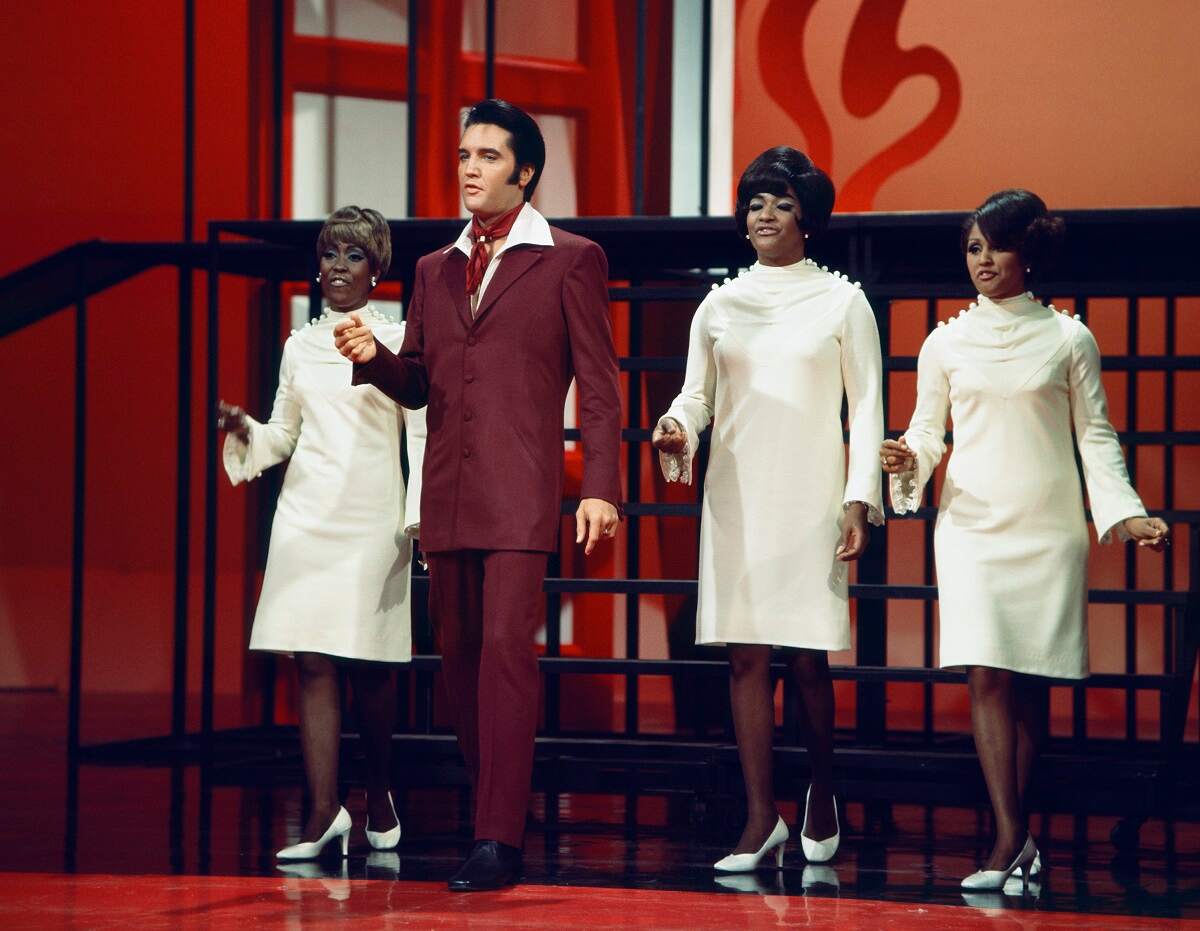
Elvis Presley Learned How to Command a Stage By Going to a Gospel Church
The Oscar-nominated film Elvis has led to renewed interest in the life story of Elvis Presley. One of the oft-forgotten bits of Presley lore presented in the movie is how quiet the boisterous performer was before he became famous. While he eventually became what director Baz Luhrmann described as “the original punk,” it took some doing for the singer to find his footing in front of crowds.
But was a young Presley truly as introverted as the film made him seem? Or was that an exaggerated detail to weave a stronger narrative for Luhrmann’s biopic?
Elvis Presley’s quiet beginnings were reflected in Baz Luhrmann’s ‘Elvis’
Part of the magic of Elvis is how it tries to create the feeling of watching the artist perform, and of living in his orbit. While it’s packed with bits that are word-for-word recreations of real-life moments, some of it is more about conveying a certain vibe. That’s part of why the Presley family said that this film more than any other attempt best captured the feeling of being around the superstar himself.
The magic of Presley finding both his voice and his confidence by going to a gospel church is one of the most moving parts of Elvis. And, according to a MsMojo YouTube video fact-checking the film, it was very much true to the singer’s life.
He attended the First Assembly of God Church in Memphis. Presley was shy about performing directly but would run up to the choir to sing along. And he also witnessed the gospel quartet, The Blackwood Brothers, practice in the church regularly. This was the young Presley’s introduction to gospel music, which would lead him to the blues, and a life-long fascination with music made by Black artists.
Elvis Presley’s legacy is difficult to pin down decades after his death

Presley turned that love for gospel and blues music into a massive career. That genre took the rhythm and blues of the 1940s and ramped it up into a new, uptempo, frenetically danceable genre. It simply made sense for the “Hound Dog” singer to follow that new, exciting direction.
And it was “Hound Dog” that simultaneously fascinated and befuddled American music listeners in the biggest way. Presley didn’t try to make it sound like the “white” music of the day; he performed the song with the same verve. And it made him a superstar — albeit a controversial one.
The performer became so enormous, that he essentially left music behind for Hollywood for a time, WBUR reports. It was a shocking disappointment for movie fans, yet made perfect sense for a man who seemed keen on always taking the next big step. He saw no ceiling, until he found it in his waning days. It took some time for the image of the middle-aged Presley, struggling with substance abuse, to revert to nostalgia for his younger days.
Was Elvis Presley an appropriator or an advocate for the Black community?
A consequence of the renewed focus on a younger Presley is society at large taking a closer look at just how the singer became the face of rock ‘n roll — once a distinctively black form of music. Producer Quincy Jones outright said that “Hound Dog” and Presley’s early career was racial appropriation.
Others feel that the singer himself wasn’t responsible, Vanity Fair reports. His wife, Priscilla Presley, shared his unabashed love of the Black community, going far beyond just enjoying their music. Many feel that if his whiteness was harmful to the Black musicians that got pushed out of rock ‘n roll, it said more about the American society of the time than about the superstar singer that advocated for the joy of black music.


